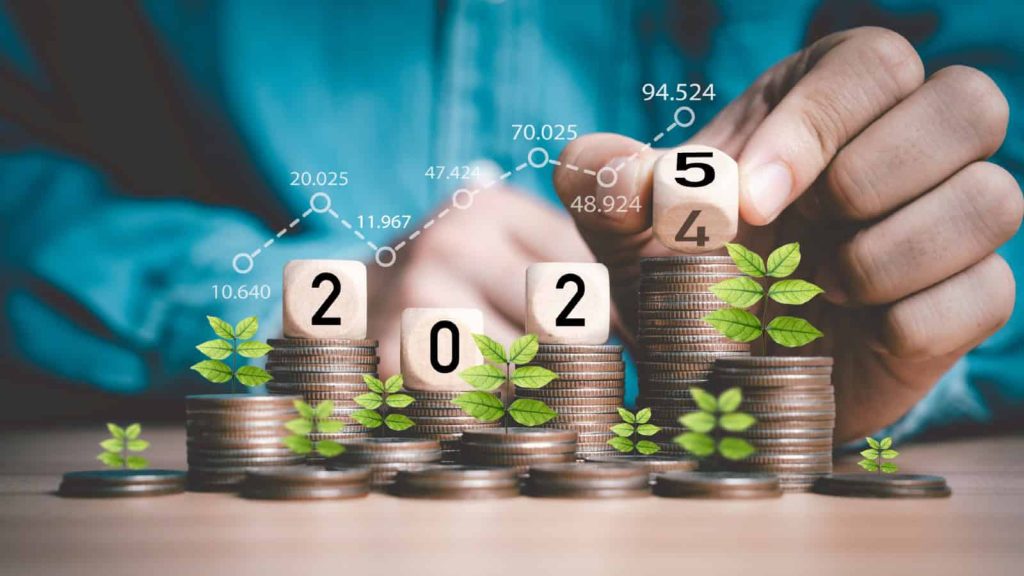Here’s the average return from the FTSE 100 over the last 5 years


During the last five years, the total return from the FTSE 100 â including price appreciation and dividends â has been 83.68%. Thatâs the equivalent of 12.93% a year, and far better than anyone could hope to achieve in a savings account.
And while part of the return is the result of a post-pandemic bounceback, there’s a lot more to it than this.
What the FTSE 100 does well
In one sense, there’s no magic to the FTSE 100 performance. The largest UK businesses that meet the qualifying requirements automatically become part of the index.
That means it isn’t a matter of judgement when one stock replaces another. It’s just to do with its market value and how that compares to other companies.
This might sound like a weakness â it means thereâs no scope to be greedy when others are fearful by buying stocks that are out of fashion. Actually however, itâs a big advantage.
Sticking to a mechanical process protects the index from making the kind of mistakes a lot of investors make. One of the biggest of these is buying and selling too much.
An example
Diploma (LSE:DPLM) joined the index in September 2023. At the time, it traded at a price of around £31.26 and made 76p in (statutory) earnings per share.
That implies a price-to-earnings (P/E) ratio of around 41. It reflects some optimistic growth assumptions and might reasonably have put some investors off buying the stock.
Despite this, investors who either bought shares in Diploma or held on to their existing investments have done very well. The stockâs up 75%, not including dividends.
The best thing to do with the stock since it joined the FTSE 100 has been to hold on to it. And that’s what index investors have done, without having to think about it.
Selling
It’s not however, what I did with my Diploma shares. I sold my investment when the price hit £28.18 a share, back in May 2023.
At the time, the stock traded at a P/E ratio around 37. So it was going to take a few years before the firm made enough cash to generate a good return on my investment.
There were also risks to consider. Acquisitions were â and still are â a big part of Diplomaâs strategy, so what if the company overpaid to buy another business?
The firmâs strategy has proved to be a winner and the stockâs up 93% since then as a result. And the company’s management team deserves a lot of the credit.
Investing lessons
I think there are better stocks to consider buying right now than Diploma. But investors who own the stock should be very careful before selling.
The FTSE 100âs returns over the last five years have been impressive. And one reason is it has held on to its winners like Diploma.
A mechanical process for buying and selling means the index hasn’t moved off the stock even when it looked expensive and risky. And that’s been a big advantage.
In terms of my own investing, this is something I’m looking to get better at. At times in the past, I’ve definitely missed some big returns by being too quick to sell.
The post Here’s the average return from the FTSE 100 over the last 5 years appeared first on The Motley Fool UK.
Should you invest £1,000 in Rolls Royce right now?
When investing expert Mark Rogers has a stock tip, it can pay to listen. After all, the flagship Motley Fool Share Advisor newsletter he has run for nearly a decade has provided thousands of paying members with top stock recommendations from the UK and US markets.
And right now, Mark thinks there are 6 standout stocks that investors should consider buying. Want to see if Rolls Royce made the list?
More reading
- How much money do you need to aim for a £37,430 passive income?
- No savings at 30? Hereâs how to target a £1,000 monthly second income in an ISA
- Up 23% this year, is it too late to buy shares in this FTSE 100 compounder?
Stephen Wright has no position in any of the shares mentioned. The Motley Fool UK has recommended Diploma Plc. Views expressed on the companies mentioned in this article are those of the writer and therefore may differ from the official recommendations we make in our subscription services such as Share Advisor, Hidden Winners and Pro. Here at The Motley Fool we believe that considering a diverse range of insights makes us better investors.







